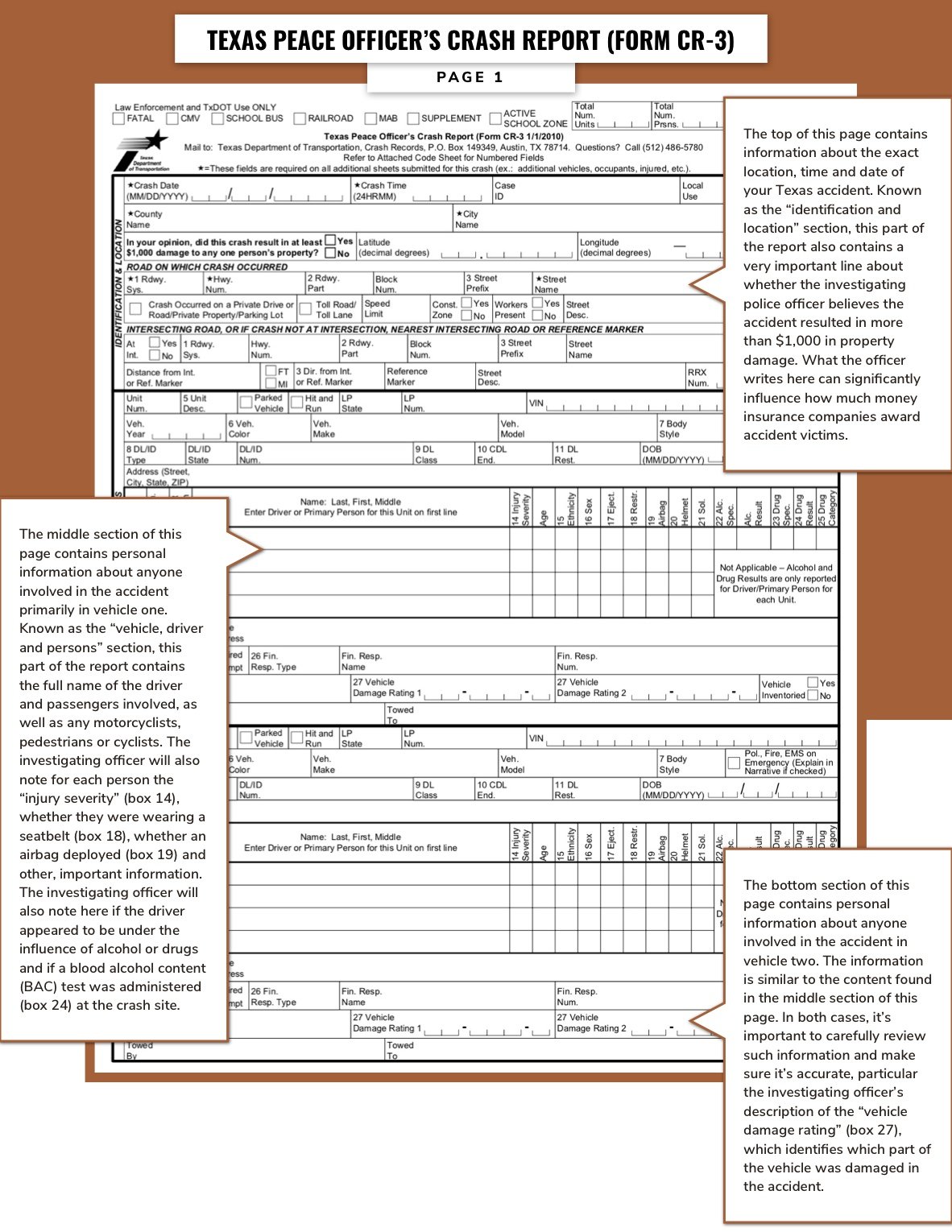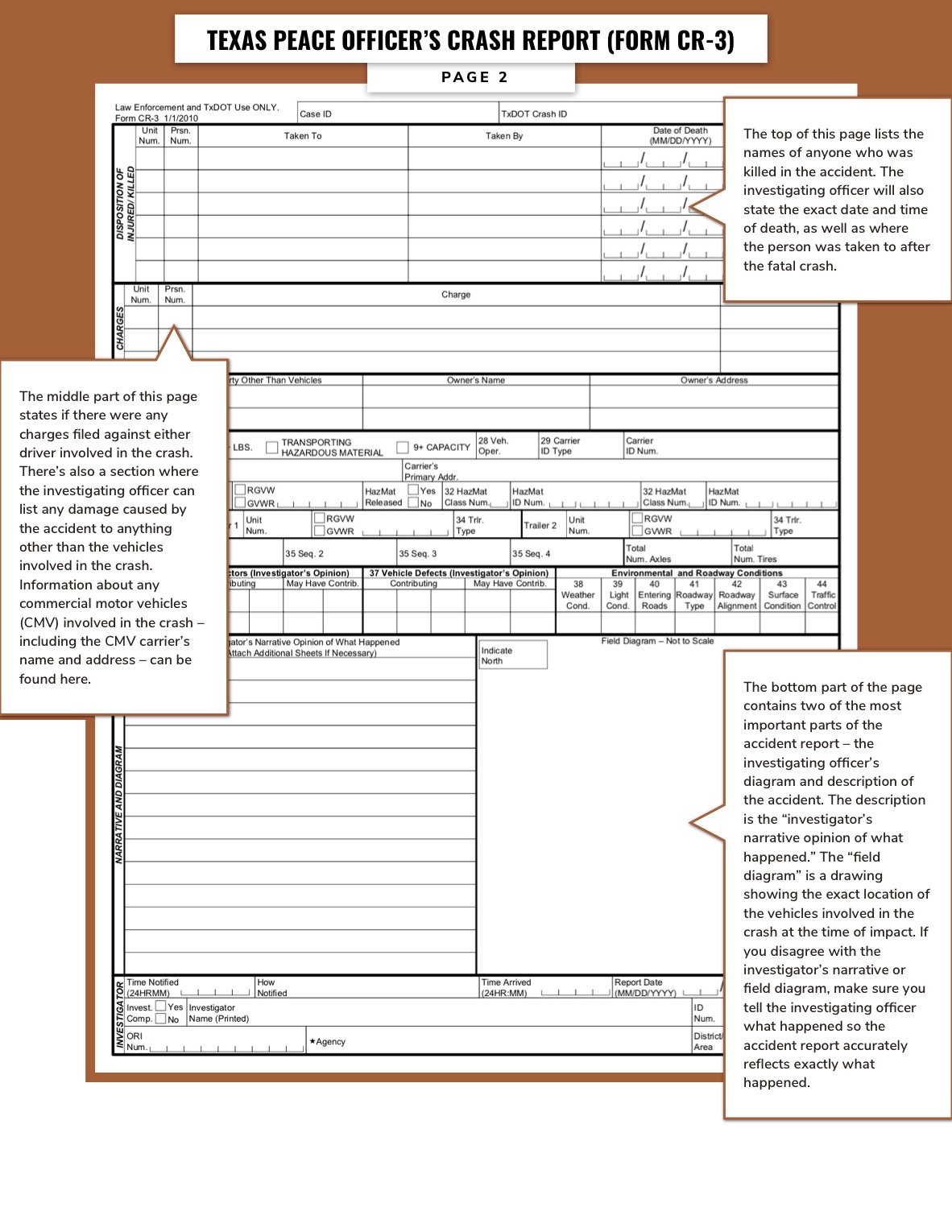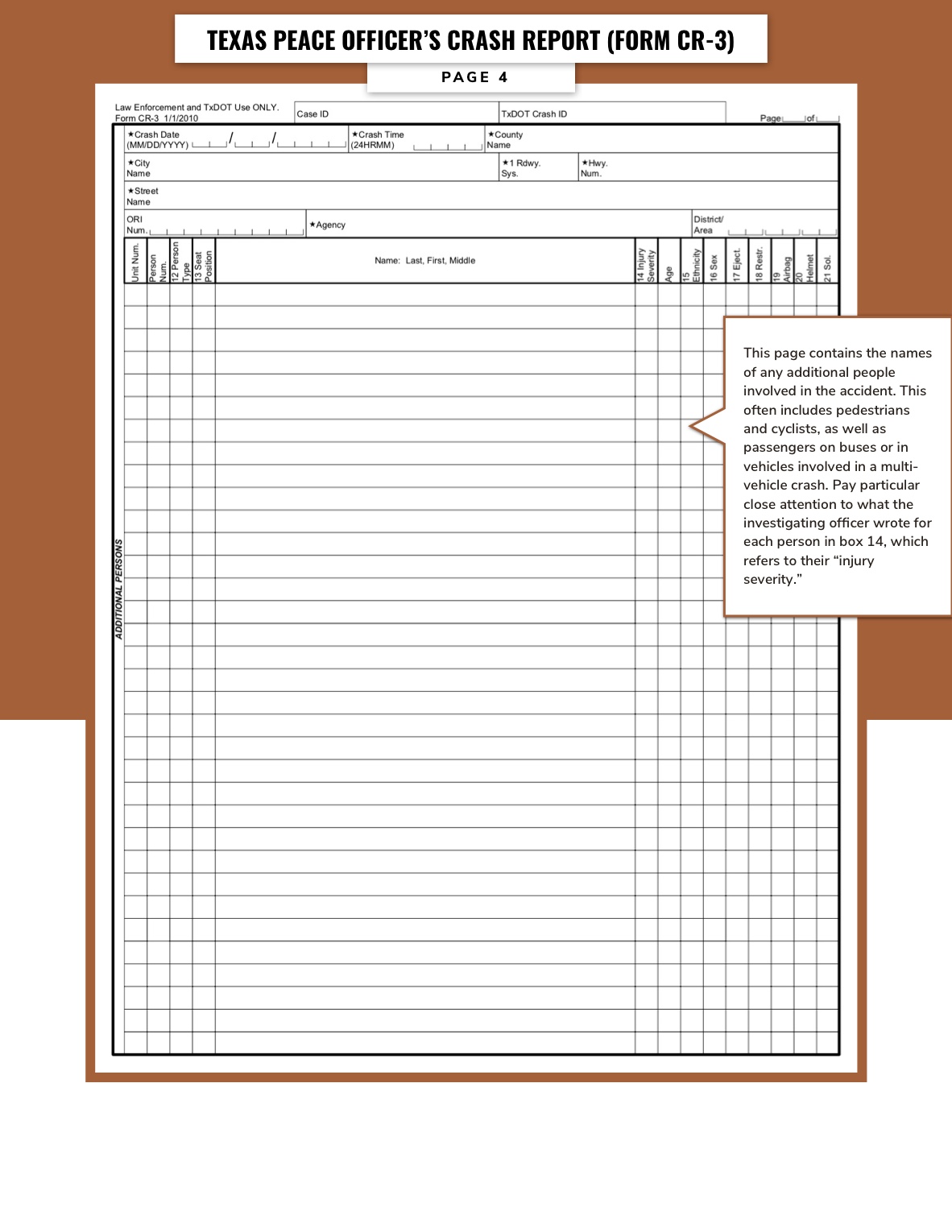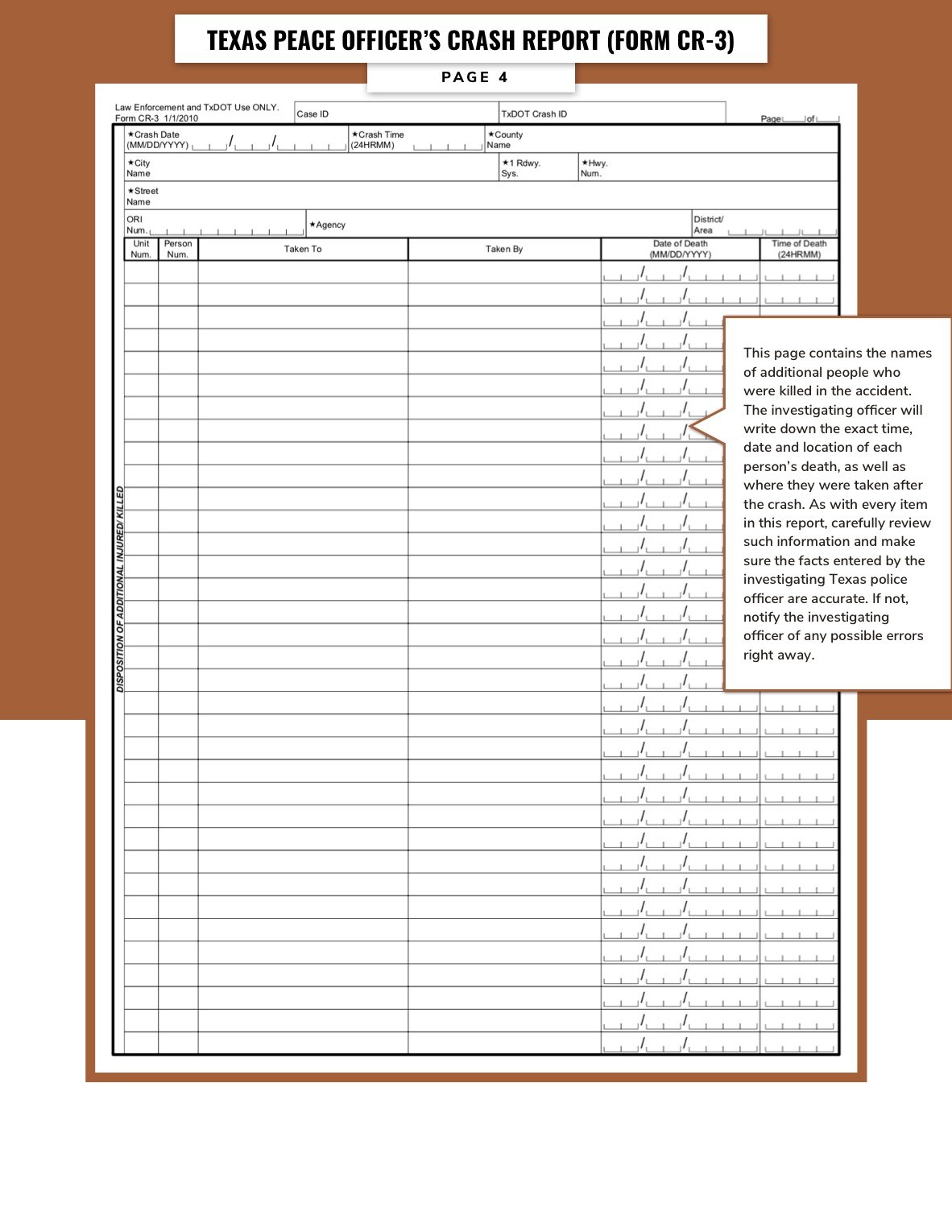In a divorce, the laws of equitable distribution distinguish marital property from separate property. Technically, only marital property, that is, proper...
Local Texas police officers and state troopers with Texas Highway Patrol fill out an accident report when responding to a serious motor vehicle crash. This 6-page report, officially called the “Texas Peace Officer’s Crash Report (Form CR-3),” contains a wealth of information about an individual accident. Insurance companies for drivers involved in an accident – as well as any injured passengers, pedestrians or cyclists – regularly consult these reports when determining who was at fault and how much money to compensate injury victims.
That’s why it’s important to know how to read an accident report and to correct any mistakes if you discover any errors or disagree with any information contained in your report. Otherwise, you might not receive the financial compensation you deserve for your crash.
Texas Peace Officer’s Crash Report (Form CR-3)
https://www.nhtsa.gov/sites/nhtsa.dot.gov/files/documents/tx_cr3_1_2010_sub3_25_01.pdf

Page 1
The top of this page contains information about the exact location, time and date of your Texas accident. Known as the “identification and location” section, this part of the report also contains a very important line about whether the investigating police officer believes the accident resulted in more than $1,000 in property damage. What the officer writes here can significantly influence how much money insurance companies award accident victims.
Click here to download a printable PDF of How To Read Your Texas Car Accident Report.
The middle section of this page contains personal information about anyone involved in the accident primarily in vehicle one. Known as the “vehicle, driver and persons” section, this part of the report contains the full name of the driver and passengers involved, as well as any motorcyclists, pedestrians or cyclists. The investigating officer will also note for each person the “injury severity” (box 14), whether they were wearing a seatbelt (box 18), whether an airbag deployed (box 19) and other, important information. The investigating officer will also note here if the driver appeared to be under the influence of alcohol or drugs and if a blood alcohol content (BAC) test was administered (box 24) at the crash site.
The bottom section of this page contains personal information about anyone involved in the accident in vehicle two. The information is like the content found in the middle section of this page. In both cases, it’s important to carefully review such information and make sure it’s accurate, particular the investigating officer’s description of the “vehicle damage rating” (box 27), which identifies which part of the vehicle was damaged in the accident.

Page 2
The top of this page lists the names of anyone who was killed in the accident. The investigating officer will also state the exact date and time of death, as well as where the person was taken to after the fatal crash.
The middle part of this page states if there were any charges filed against either driver involved in the crash. There’s also a section where the investigating officer can list any damage caused by the accident to anything other than the vehicles involved in the crash. Information about any commercial motor vehicles (CMV) involved in the crash – including the CMV carrier’s name and address – can be found here.
The bottom part of the page contains two of the most important parts of the accident report – the investigating officer’s diagram and description of the accident. The description is the “investigator’s narrative opinion of what happened.” The “field diagram” is a drawing showing the exact location of the vehicles involved in the crash at the time of impact. If you disagree with the investigator’s narrative or field diagram, make sure you tell the investigating officer what happened so the accident report accurately reflects exactly what happened.


Pages 3 and 4
These two pages contain the accident codes for 44 different boxes found on page two of the report. Carefully review each box and make sure the correct code has been entered in each case. Some of the most important boxes include “injury severity” (box 14), “drug test result” (box 24) and “sequence of events” (box 35). However, perhaps the most important box may be “factors and conditions” (box 36), which lists 74 different driver factors that may have resulted in causing the crash. Such factors and conditions include “driver inattention” (20), “fatigued or asleep” (40), “had been drinking” (45), “unsafe speed” (60) and “cell/mobile phone use” (72).

Page 5
This page contains the names of any additional people involved in the accident. This often includes pedestrians and cyclists, as well as passengers on buses or in vehicles involved in a multi-vehicle crash. Pay close attention to what the investigating officer wrote for each person in box 14, which refers to their “injury severity.”

Page 6
This page contains the names of additional people who were killed in the accident. The investigating officer will write down the exact time, date and location of each person’s death, as well as where they were taken after the crash. As with every item in this report, carefully review such information and make sure the facts entered by the investigating Texas police officer are accurate. If not, notify the investigating officer of any possible errors right away.





